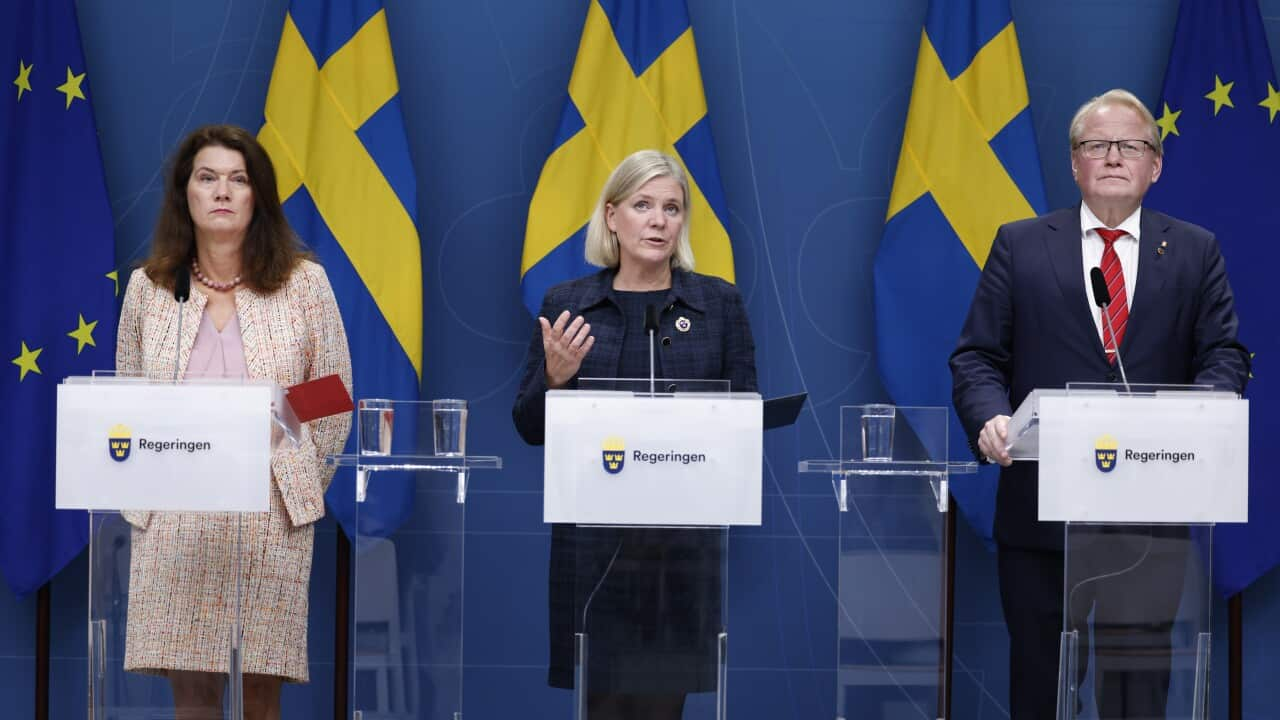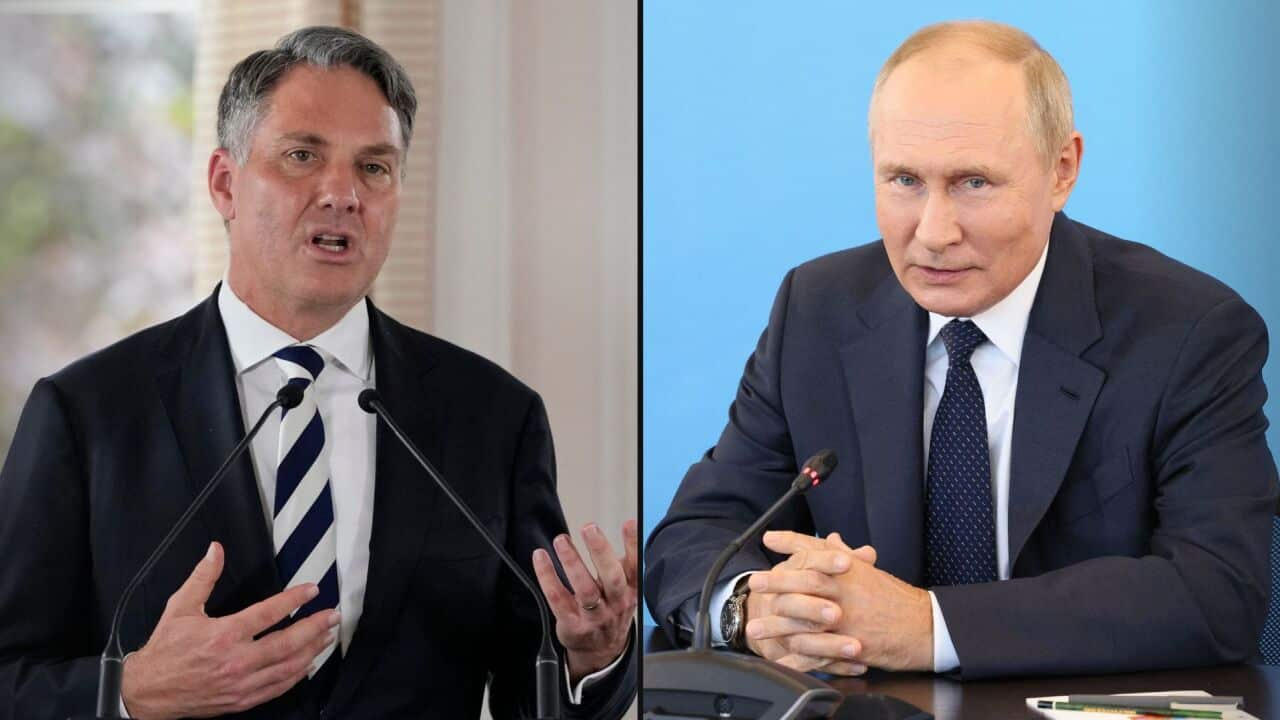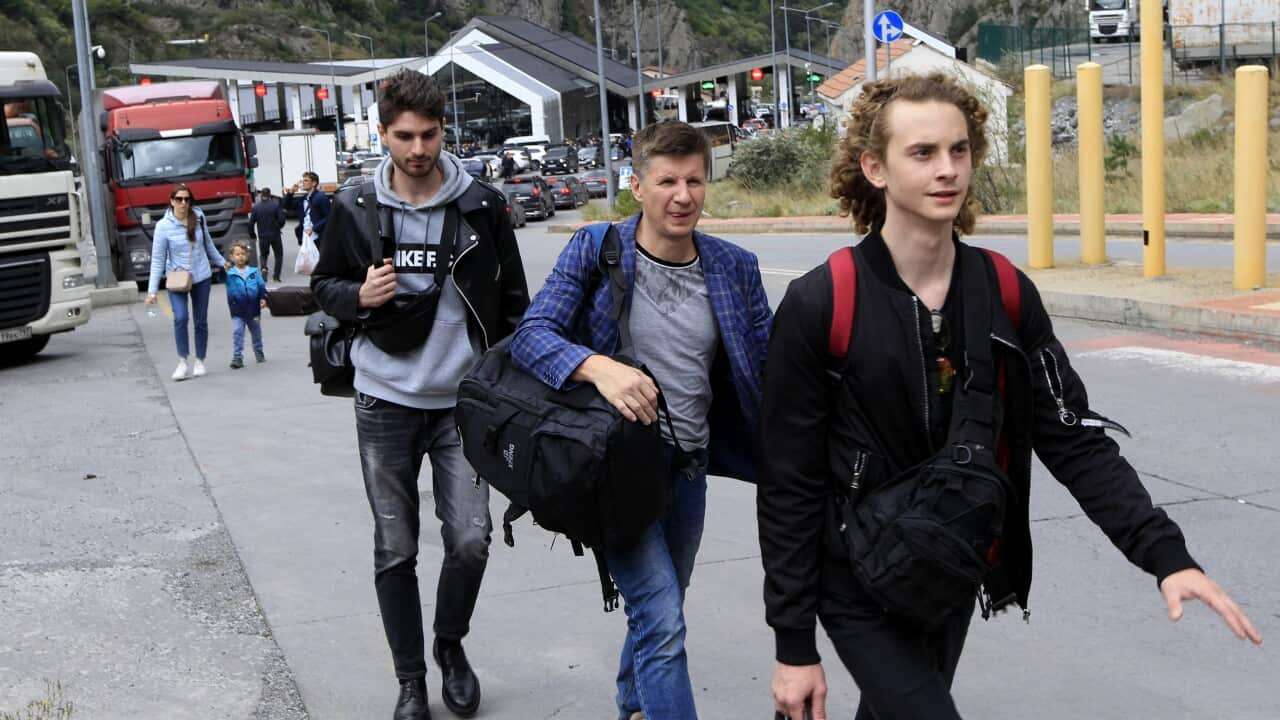European countries are investigating what Germany, Denmark and Sweden say are attacks that have caused major leaks into the Baltic Sea from two Russian gas pipelines at the centre of an energy stand-off, while Ukraine insisted it will press ahead with its plan to wrest back all its occupied land from Russia.
But it remained far from clear who might be behind the leaks that were first reported on Monday or any foul play, if proven, on the Nord Stream pipelines that Russia and European partners spent billions of dollars building.

A large disturbance in the sea can be observed off the coast of the Danish island of Bornholm on Tuesday, 27 September 2022, following a series of unusual leaks on two natural gas pipelines running from Russia under the Baltic Sea to Germany, have triggered concerns about possible sabotage. Source: AAP / AP
Sweden's and Denmark's prime ministers said the leaks were clearly caused by deliberate actions, with information suggesting likely sabotage, while Poland's prime minister blamed sabotage, without citing evidence.
Russia, which slashed gas deliveries to Europe after the US and its allies imposed sanctions over its invasion of Ukraine, also said sabotage was a possibility and that the leaks undermined the continent's energy security.
'Act of sabotage'
A senior Ukrainian official claimed the incident was a Russian attack to destabilise Europe.
"We see clearly that it's an act of sabotage, related to the next step of escalation of the situation in Ukraine," Polish Prime Minister Mateusz Morawiecki said at the opening of a new pipeline between Norway and Poland.
Sweden's Prime Minister Magdalena Andersson told a news conference that two blasts had been detected in relation to the leaks, and though this did not represent an attack on Sweden, her government was in close contact with partners such as the NATO military alliance and neighbours such as Denmark and Germany concerning the developments.
Seismologists in Denmark and Sweden said they had registered two powerful blasts on Monday in the vicinity of the leaks.
"The signals do not resemble signals from earthquakes. They do resemble the signals typically recorded from blasts," the Geological Survey of Denmark and Greenland said.
And seismologists at Sweden's Uppsala University said the second, bigger explosion "corresponded to more than 100kg of dynamite," adding the blasts were in the water, not under the seabed.
"Germany is a country that knows how to defend itself. And Europe is a continent that can protect its energy infrastructure," Germany's Habeck said, adding the energy supply of Europe's largest economy was not affected.
Denmark's armed forces released a video showing bubbles boiling up to the surface of the sea and said the largest gas leak had caused a surface disturbance of well over 1km in diameter.
The leaks were very large and it could take perhaps a week for gas to stop draining out of the Nord Stream 2 pipeline, the head of Denmark's Energy Agency Kristoffer Bottzauw said.
Ships could lose buoyancy if they entered the area.
"The sea surface is full of methane, which means there is an increased risk of explosions in the area," Mr Bottzauw said.
Kremlin spokesman Dmitry Peskov called it "very concerning news. Indeed, we are talking about some damage of an unclear nature to the pipeline in Denmark's economic zone".
He said it affected the continent's energy security.
Neither pipeline was pumping gas to Europe at the time the leaks were found amid the dispute over the war in Ukraine but the incidents will scupper any remaining expectations that Europe could receive gas via Nord Stream 1 before the northern hemisphere winter.
Meanwhile, Ukrainian presidential adviser Mykhailo Podolyak said Ukraine will not be swayed by any nuclear threats from Russia or annexation votes held on its territory and will press ahead with its plan to retake land from Russia.
Mr Podolyak said the world's nuclear powers should warn Russia that any use of strategic or tactical nuclear weapons in Ukraine would be met with concrete action, and that his country lacked the technology to respond symmetrically itself.
"We will continue our work to de-occupy our territory regardless," he said in an interview.
Mr Podolyak spoke as Russia concluded a fifth and final day of voting in four partially-occupied Ukrainian regions that it says paves the way to their formal annexation.
He derided the votes as legal nonsense.





